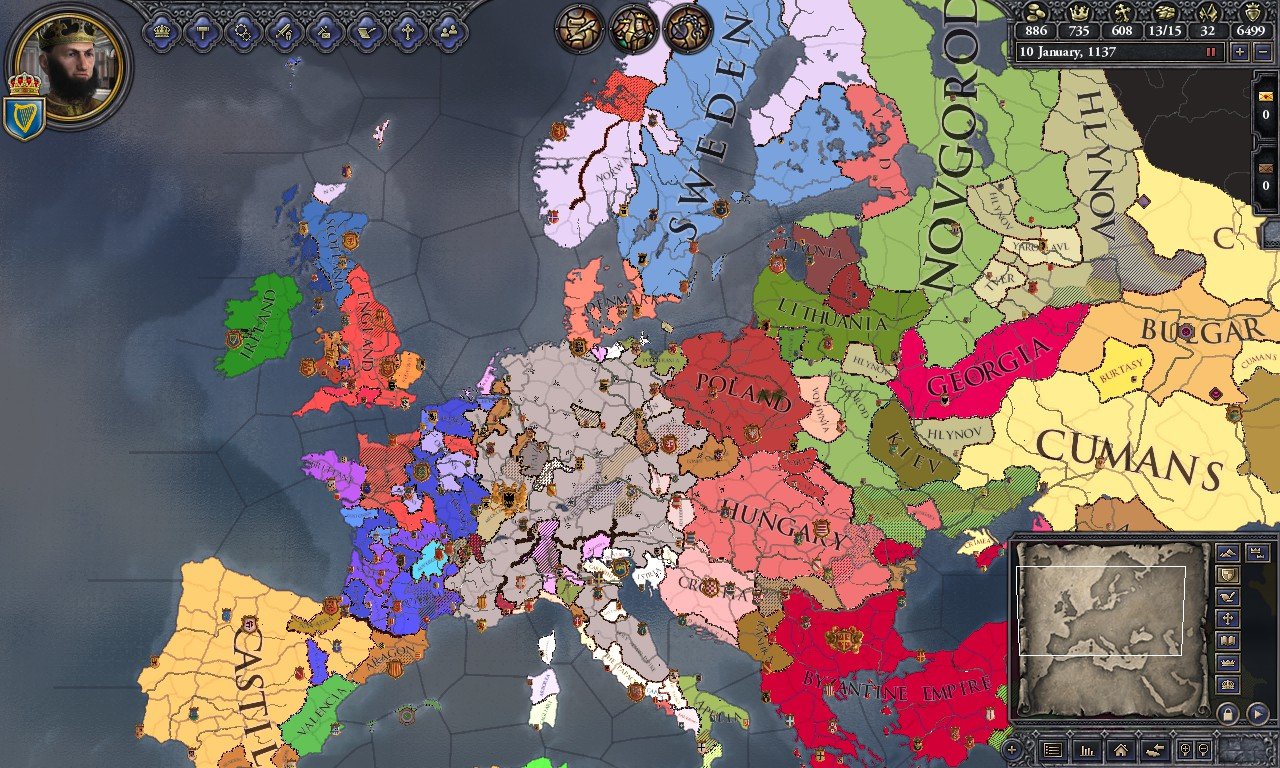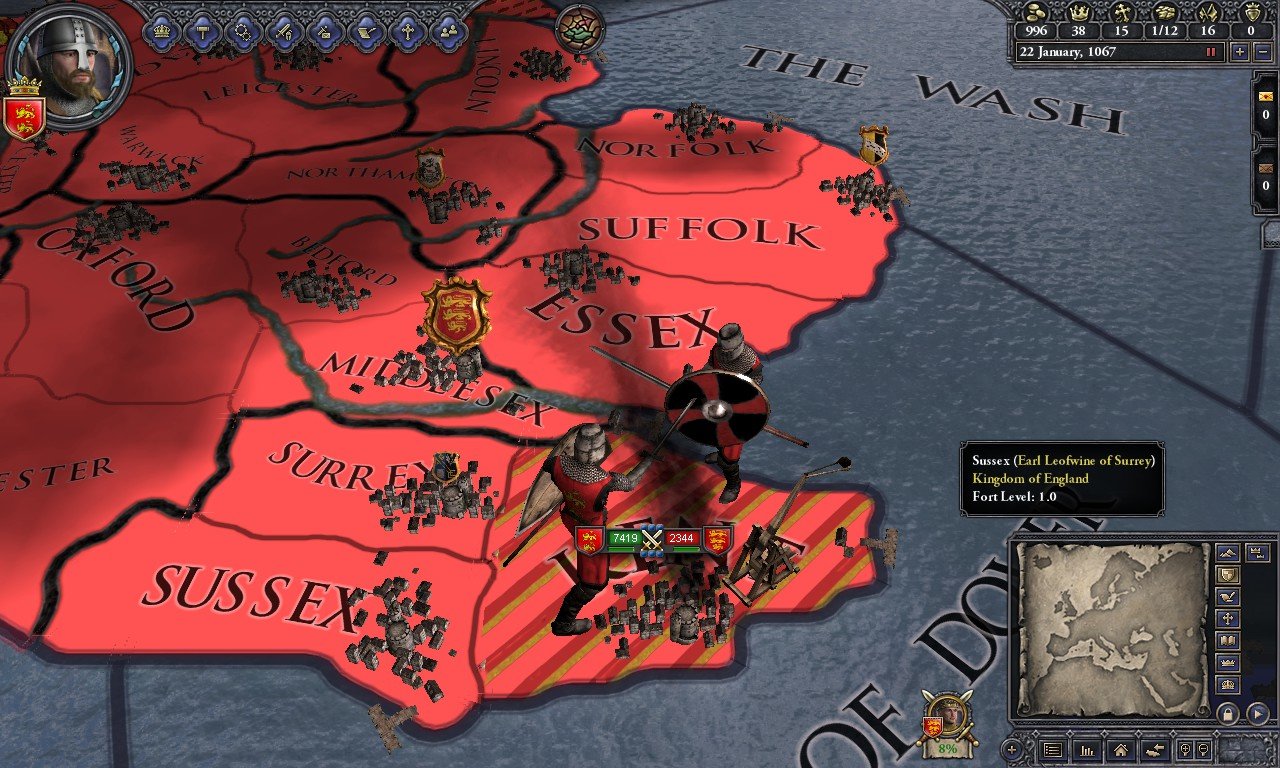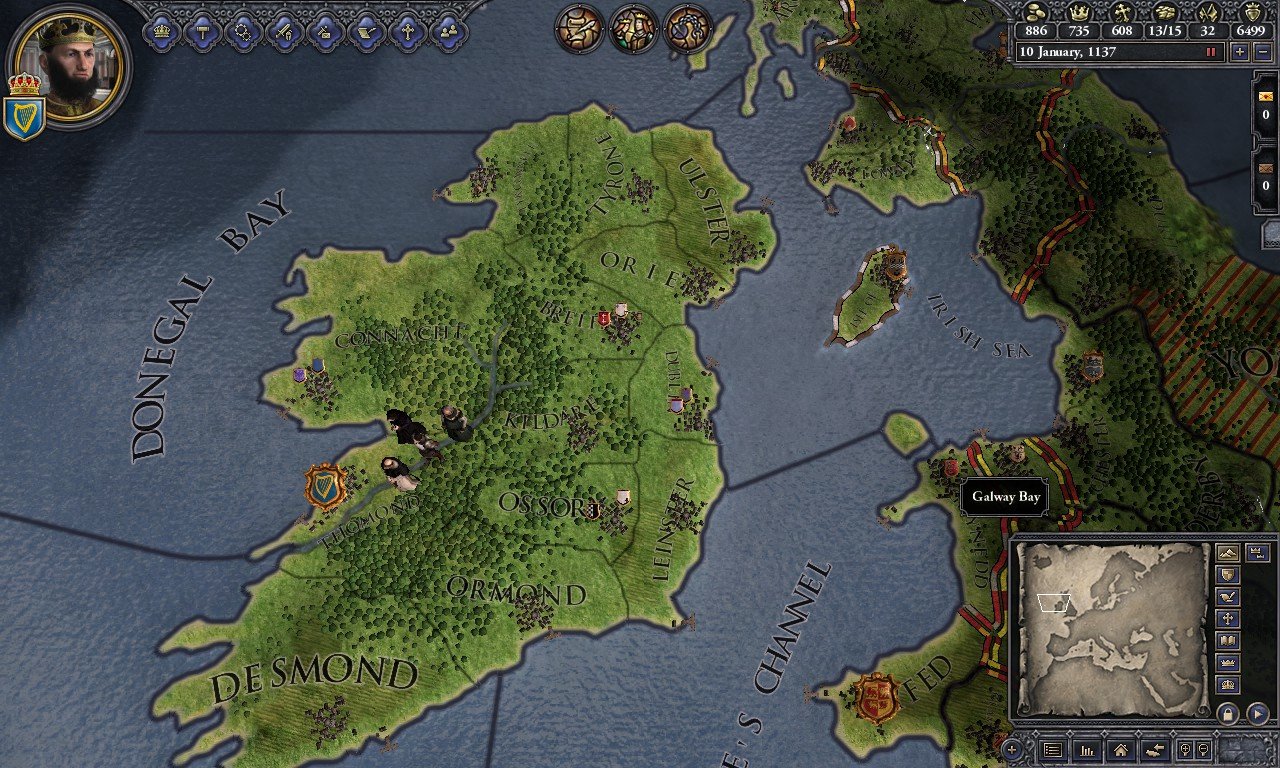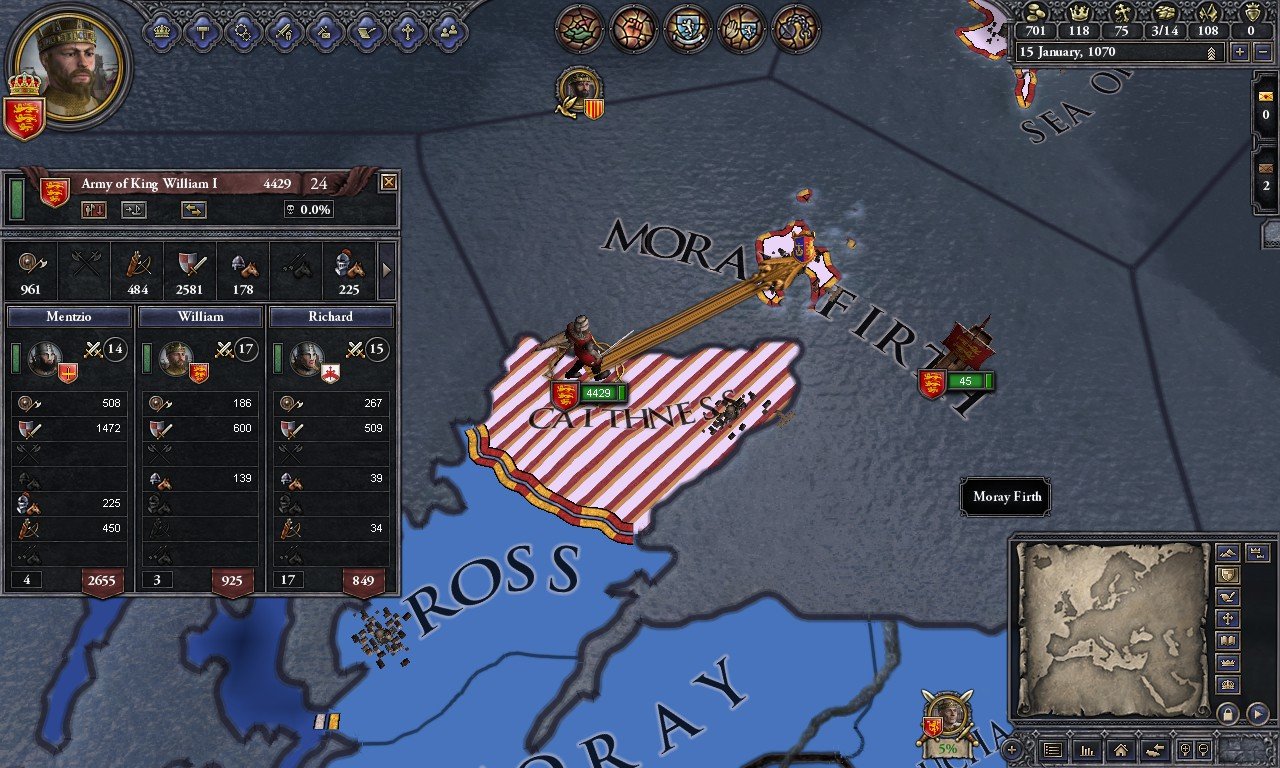We wouldn’t blame you if you’re unfamiliar with the Paradox “grand strategy” games. “Grand strategy” is a general and unofficial umbrella term that refers to Paradox’s historical simulation series, including such titles as Europa Universalis, Hearts of Iron, and Victoria. Each title allows you to lead a country of your choice through a very specific period of history, from ancient Rome to World War II. Crusader Kings is the latest title in this specific niche, covering the medieval era—specifically from just before the Battle of Hastings in 1066 all the way to the end of the Hundred Years war. You’ve probably guessed that it’s an incredibly nerdy title, but it’s also a lot of fun and possibly the best introduction to the “grand strategy” series.

Paradox strategy titles generally all take place on a large Risk-like map of the world divided up into hundreds of small counties, a handful of which form the basis of your kingdom. The games themselves take place in real time, albeit at a glacially slow pace, with a lot of pausing to issue commands. From here you can direct your armies from place to place, manage your counties and holdings, build new towns and castles or improve your existing ones. Through this, you guide your kingdom to greater glory through diplomacy, intrigue, and war. Combat is essentially handled as complex Risk, with a largely hands-off battle system. However, every Paradox “grand strategy” has some kind of catch that distinguishes it from the others; Victoria had the POP, for instance, and Europa had the core mechanic for capturing countries. Crusader Kings is no exception, adding in a complex nobility hierarchy and simulating hundreds of nobles across Europe.
Nobles are the name of the game in Crusader Kings II. Unlike the very simplified ruler system in Europa or the political elections in Victoria, Crusader Kings II makes managing your royal family one of your top priorities. There are hundreds of nobles across Europe, each one outfitted with several personality traits. These make them excellent generals, wise clergymen, scheming usurpers, or obnoxious problems to deal with. A critical gameplay point is appeasing your relatives and your court, strategically marrying them into better families and granting them counties to govern in your name. Do so, and you’ll be rewarded with higher tax revenue and more war support. Fail, and you might have a revolution on your hands or even an assassination. Dynasty and family prestige is the other key point to this nobles system. The death of your ruler doesn’t necessarily mean the end of the game; you simply take control of your closest heir. Of course, your heir probably has rivals of his own to deal with, making the cycle start over.

One of the best elements of the Paradox “grand strategy” games is the way history diverges. You can begin the game on any date to the very day, with the world set up as accurately as possible; you can start with a county, a duchy, or an entire kingdom, with or without a higher liege to serve. But as soon as the game begins, things can diverge wildly thanks to your intervention. For example, our first game as an Irish count had us become the king of both Ireland and Wales, and England was totally wiped out and annexed by Norway due to their constant struggles against us and our Norwegian allies. The noble system makes this even more divergent, creating a lot of emergent gameplay moments. We found ourselves playing to our ruler’s strengths; if our ruler was an obnoxious jerk, we’d start executing traitors at random and picking fights, then have fun fixing things up when the next ruler rose to power.
If you’re new to this kind of game, Crusader Kings II is definitely the place to start. It’s very simplified; the noble system is easy to understand and the game streamlines much of the confusing systems. For example, the game features no standing armies. Instead, each county will provide a certain number of levies, which can be raised at will. You can influence the number by building new barracks and keeps, and it’s far easier to manage than the standing armies of Europa and Victoria. Diplomacy is also simplified by the removal of infamy; no longer can you simply challenge anyone you please without a proper reason for war, and the game will tell you whether or not your diplomatic action will be well-received. Veterans may chafe at the restrictions and simplifications, but it makes the game smoother and easier to learn.

There are two main concerns surrounding Paradox “grand strategies”. The first is that the games have what most fans affectionately refer to as a “learning cliff”, but Crusader Kings II definitely attempts to break that trend. The game has very thorough in-game references which appear whenever you open a window, until you feel comfortable enough to disable each one. The second is functionality, as Paradox games have a reputation for being broken at launch, and are usually only fixed through expensive expansion packs. We were bracing ourselves for the worst, but to our surprise, this game was perfectly stable throughout our many rounds, with no crashes at all. The only issues were a twenty-minute-long load screen the first time we ran the program, and a few odd instances of placeholder text (one lord affectionately accepted an offer of white peace with the message “INTERGER:AI_GOOD_FOR_US.”). Aside from those minor, non-game-breaking issues, the game completely exceeded our expectations in terms of bugs and feels like a complete, functional product.
It’s not an entirely flawless product. Occasionally, things stagnate and get dull, especially when you’re out of methods to advance your kingdom. But if you’re clever, or outright destructive, things can get very interesting very quickly. It’s very addictive and fun to try new kingdoms and strategies, and if things get boring you can just hop to a new country or era. You can even change countries in a single game when loading a save file; beating down a country, swapping to them and then taking revenge on your former kingdom is both hilarious and fun. The game can also run in multiplayer, but unfortunately we did not get to spend more than a few passing minutes examining it. But if you can find 32 other players to run their own kingdoms and duchies, you could have a seriously fun time with human minds behind your rivals.

Final Verdict: If you’ve ever wanted to get into the wacky historical simulation niche that Paradox has built up, Crusader Kings II is a perfect newbie gateway. It’s not as complex as other “grand strategies”, which may rankle vets. However, it’s a huge step forward for Paradox in terms of QA.
This review is based off of a review copy of the PC version of Crusader Kings II by Paradox
- Well Crafted
- Good Entry Into Grand Strategies
- Fun to Play
- Stagnate and Dull Sometimes
- Twenty-Minute-Long Load Screen
